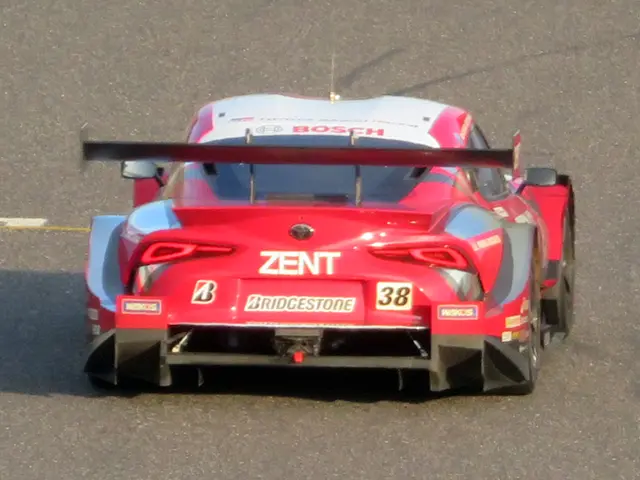Heart-wrenching Tales at the Attari-Wagah Border: India-Pakistan's Divided Families
Post-Kashmir Strife: A Pakistani Mother and Indian Son Cannot Coexist
In the scorching sun at the Attari-Wagah border checkpoint, the divide between India and Pakistan couldn't have been more heart-wrenching. Saira, wearing a black net burqa, clung tightly to her husband Farhan's hand, moments away from saying their goodbyes.
Named after the Attari village on the Indian side and Wagah across the border, this crossing has been a gateway for neighbors for years. Yet, the Attari-Wagah border now stands as another frontier where the nations divide their citizens, including thousands of families like Saira and Farhan's, with relatives on either side.
Love across the Divide
The couple met three years ago on Facebook and were married shortly after, with Saira moving to New Delhi. But with India ordering almost all Pakistani citizens to leave by Tuesday, following a deadly attack in Pahalgam, their cross-border union was put to the test.
Like countless others, they were separated at the checkpoint, purely defined by the colors of their passports: Saira's green and Farhan's blue. The one-year-old baby Azlan, held in Saira's left arm, had a blue passport as well.
Separation and Struggle
Since the April 22 attack, an estimated 750 Pakistani passport holders have crossed back across the border, while about 1,000 Indians have returned. Victims of this crisis include a Pakistani woman visiting her mother's home after two decades, two sisters who had to return from a wedding in India without attending, and elderly Pakistani patients with deadly ailments.
One of the most affected is 48-year-old Haleema Begum, who travelled for two days from Odisha on the eastern coast to the border crossing. Haleema left her home in Karachi 25 years ago to marry a small businessman in India. She lamented, "Is it fair of the government to uproot my life and push me out?"
Exiled from Home
With no answers and a sea of questions, Haleema wept, baby Azlan's heartbreak evident as he was torn away from his family. Saira, too, anxiously awaited her departure, tears streaming down her face as she balanced her son on her hip.
As conflict escalates between the nuclear-armed neighbors, it's the innocent children and loving families like Saira, Farhan, and Haleema's who suffer the consequences. Their stories serve as a painful reminder that love and unity must triumph over the divide caused by politics and hate.
- The heart-wrenching scenes at the Attari-Wagah border, a gateway for neighbors for years, are now emblematic of the divide between India and Pakistan.
- To add to the heartbreak, the love story of Saira and Farhan, who met on Facebook and were married shortly after, is now being tested by the recent order for Pakistani citizens to leave India by Tuesday.
- Thousands of families, including Saira and Farhan's, are affected, with their separation purely defined by the colors of their passports.
- One of the most affected is Haleema Begum, a 48-year-old woman who had to leave her home in Karachi 25 years ago to marry a small businessman in India.
- With no clear answers or resolutions, Haleema wept, joined by Saira and the heartbreak of baby Azlan, torn away from his family.
- As the conflict between India and Pakistan escalates, it is the families like Saira, Farhan, and Haleema's who are suffering the most.
- Their stories serve as a painful reminder that love and unity must triumph over the divide caused by politics and hate, particularly in the context of the ongoing war-and-conflicts in the region.
- In the midst of these heart-wrenching tales at the Attari-Wagah border, it's crucial to highlight the broader general-news impact of politics on innocent lives and families dealing with migration and checkpoint restrictions.








